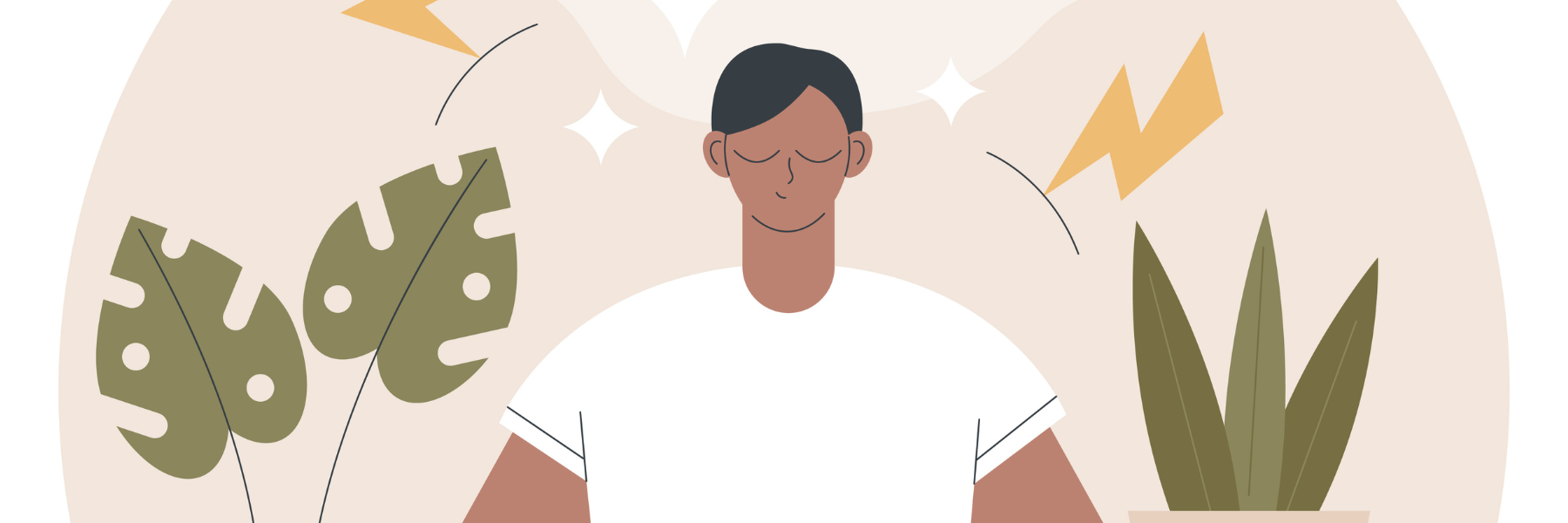To raise awareness of Men’s Mental Health and encourage seeking help amidst this year’s Men’s Health Week, we’re sharing a colleague’s mental health journey. From initial diagnosis to how DfT’s Employee Assistance Programme and Mental Health First Aiders supported recovery.
In December 2020 I was diagnosed with anxiety and depression.
I’ve suffered with my mental health for as long as I can remember but, like a lot of men, I didn’t talk to anyone about it.
I told myself I didn’t want to be a burden, but the truth was I was worried about how others would perceive me. Real men were strong, brave, resilient, and unemotional, and they didn’t have mental health problems. I just needed to ‘man up’ and deal with it.
I know better now. There is real strength in being vulnerable and it takes bravery to admit you have a problem that you can’t face alone.
Lockdown
I received my diagnosis during the Covid-19 pandemic. Living in lockdown and the stress of what was happening in the world made all the symptoms I had learned to live with that much harder to manage.
I could just walk away from stressful situations before, but there was no walking away from this.
My diet, daily routine and coping mechanisms became increasingly unhealthy. I worked long hours without breaks to try and distract myself from the stress and isolation of lockdown. I was burned out and mentally exhausted, and a death in the family finally tipped me over the edge.
Anxiety turned into panic attacks and low mood progressed into suicidal thoughts. I had no choice but to ask for help.
“I felt guilty about needing to take time off but my manager was extremely understanding and supportive”
Recovery
A GP confirmed my condition and what I had known all along, which made me hopeful that things could get better. They prescribed me medication, gave me a sick note, and signposted me to support services in the NHS and my local area.
I felt guilty about needing to take time off but my manager was extremely understanding and supportive, and assured me that taking time off to recover was the right thing to do. We kept in touch regularly while I was signed off, which made me feel less isolated from my colleagues and made the prospect of a return to work, and a sense of normality, achievable.
I sought counselling through DfT’s Employee Assistance Programme which helped me to understand the causes of my condition, and I started Cognitive Behavioral Therapy (CBT) through the NHS which helped me to identify unhelpful thoughts and behaviours and replace them with good ones. I also worked on developing a healthier routine that included an exercise to reduce nervous energy and dedicated time to reflect and practice Mindfulness to subdue my anxiety.
When I was ready, I worked with my manager on a return-to-work plan based on the recommendations of Occupational Health that included a phased return and reduced workload. When I did return, we had regular catch-ups to ensure I wasn’t feeling overwhelmed and was receiving the right support. It wasn’t long before I was working full-time and managing a full workload again.
I had been away for nearly three months and, although I did feel ready, returning to work was still incredibly daunting. It really helped to know I had support from friends and colleagues, and that my mental health was being taken seriously.
Your well-being matters in DfT and there are numerous initiatives and networks that promote positive mental and physical health and good work-life balance. Among these is a network of Wellbeing Champions who support the well-being of staff across the Department, a team of Mental Health First Aiders who you can talk to in a crisis, and other networks that provide specialised support including bereavement and financial matters.
It still helps to know that I work in a supportive environment where my well-being is just as important as the work that I produce and mental health is not a taboo subject.
“Your well-being matters in DfT and there are numerous initiatives and networks that promote positive mental and physical health”
The other side
Like a lot of men, I still have a mental health condition and it still takes time and effort to manage my mental health.
I try to make sure my diet, routine and habits are healthy ones. An important part of this is having a good work-life balance, which working in DfT allows me to do. Thanks to the counselling I received, I am far more aware of my triggers and the best way to deal with them, and I still use the techniques that I learned in CBT and practice mindfulness to keep my stress levels down.
More importantly, I feel comfortable talking about my mental health. I know it’s ok to not be ok all the time, and there is no shame in asking for help. I made it to the other side before and I can do it again, and I know I don’t have to do it alone.
Resources:
NHS Cognitive Behavioural Therapy




